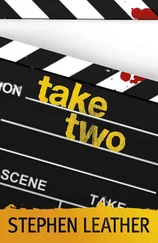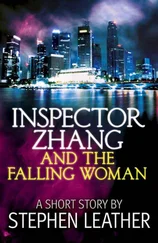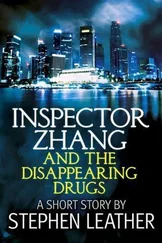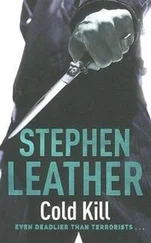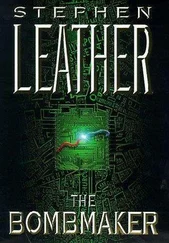‘So, where do we stand?’ he asked Thomas.
‘The men are all presently at an ISIS training facility in Aleppo Province in Syria,’ Thomas replied. ‘US Forces have been active in the area but that part of north-west Syria is still very much a safe haven for ISIS. They’ve been using the camp to train their people and plan attacks in the region and beyond.’
‘You can get to them?’
‘Subject to being allocated enough resources, yes.’
‘Money is no object,’ said Van der Sandt.
‘Then we can get to them, for sure,’ said Thomas.
‘I don’t want them killed, Neil,’ said Van der Sandt. ‘Not in Syria, anyway. I want them brought here.’
Thomas frowned. ‘You want to put them on trial in the States?’
Van der Sandt smiled thinly. ‘Not exactly. Where are they from?’
‘They’re a mixed bag,’ said Thomas. ‘Four of them are British. Home-grown jihadists, born in the UK but radicalised at some point. Of the four, two are from Bradford, in the north of England, and two are from London. They were known to the UK anti-terrorism police and were under surveillance before they slipped off the grid and reappeared in Syria.’
Van der Sandt shook his head. ‘It’s an island, how hard is it to stop people leaving?’
‘The Brits tend to be good at surveillance but not quite so good at taking action,’ said Thomas. ‘Often their law enforcement agencies are shackled by political correctness. We’ve got excellent sources in MI5 and the Metropolitan Police so we have full details on all four men. They’ve been behind a number of beheadings of journalists and NGO workers in Syria and are very active on social media.’
‘I don’t get this whole home-grown terrorist thing in the UK,’ said Van der Sandt. ‘These people fight to get into a safe country and once they’re in they turn against it. It doesn’t happen in the US, does it? When was the last time you heard about a jihadist with a US passport?’
‘These guys were never refugees, they were all born in the UK,’ said Thomas. ‘The problem seems to be the British mosques, where they recruit disaffected youth and groom them to be jihadists. And the internet, of course.’
‘The internet’s worldwide, but we don’t see American Muslims being converted,’ said Van der Sandt. ‘The Brits need to get their act together.’
‘No argument from me,’ said Thomas. ‘Anyway, two of the others are Somalians with Dutch passports. The Dutch government gave them asylum and fast-tracked them to citizenship. As soon as they got their Dutch passports they moved to the UK. We’ve done some digging and it looks as if they weren’t your run-of-the-mill asylum seekers fleeing a war zone. Their uncle was a warlord behind several ship seizures ten years ago.’
‘A pirate?’
‘Responsible for ransoms totalling more than twenty million dollars. The story I’m told is that the uncle paid for the nephews to get to Holland.’
‘And the Dutch never checked?’
‘Most of Europe are known to be lax when it comes to assigning refugee status,’ said Thomas. ‘Anyway, the two Somalians dropped below the radar at the same time as the Brits, and then resurfaced at a training camp in Syria. And then there are two more,’ Thomas continued. ‘One is a Pakistani with a Belgian passport. He claimed to be from Afghanistan and on the run from the Taliban, but we’ve spoken to family members in Pakistan and there’s no doubt it’s him. Then the final guy is from Finland. His parents are from Bangladesh but he was born in Finland. He left the country more than fifteen years ago and has been with ISIS for more than a decade. He was the oldest of the group so there’s a good chance he led the attack.’
‘And they’re all in the same training camp now?’
Thomas nodded. ‘According to the intel we have, they went straight there after the attack. They’re instructing other jihadists on the techniques they used. But we have no idea how long they’ll be there.’
‘So you go get them now, Neil. Money no object. Just do what needs to be done.’
‘Not a problem, Mr Van der Sandt. I already have a team in place and I have guys working on the logistics as we speak.’
‘And what about the attack itself? Did they have help?’
‘We think so but we don’t have any hard intel as yet. As you probably know, the north of the island is a very grey area under international law. It’s only recognised by the Turks, because they invaded back in 1974. Most Turkish Cypriots are Sunni Muslims, and some are pro-ISIS. Intel suggests that ISIS has been using Northern Cyprus to get its people from Syria in and out of Europe. Foreign fighters from Europe can fly straight to the south of Cyprus, then cross the border into the north and fly from there to Turkey, Syria or Iraq.’
‘So they had help from locals?’
‘Maybe, maybe not,’ said Thomas. ‘They rented the jet skis themselves using fake Turkish passports. And they used the same passports to register at the hotel they were staying in. If they were being helped they would probably have stayed under the radar completely and avoided hotels. The thing is, they probably don’t care that their identities are known. The opposite in fact; there are several gloating videos that keep appearing on Facebook and YouTube. They get taken down but they’re like cockroaches – you stamp on one and two more pop up.’
‘How did they leave the island?’
‘They weren’t on any scheduled flights and so far as we can tell they weren’t on a private flight, so we’re assuming they left by boat. Either to Turkey and then on to Syria, or maybe to Syria direct.’
‘What about the lack of police response?’ asked Van der Sandt.
‘We’re looking at that,’ said Thomas. ‘More than a dozen calls were made to the emergency services, some within a few seconds of the first shots being fired. But the police didn’t arrive until after the shooters had left. The chief of police is a Muslim but then so is most of the force.’
‘The police station is ten minutes away from the resort, right?’
Thomas shrugged. ‘But it’s not an efficient police force by any means. The question is whether or not anyone in the cops helped facilitate the attack and we’re looking at that. The difficulty is that if they did help it would probably have been for ideological reasons rather than for money, so there’s no paper trail. I’m on the case, Mr Van der Sandt. If they were helped by someone locally, we’ll know eventually.’
They arrived at the entrance to Van der Sandt’s estate. The gates opened and a female member of the security team came out of the gatehouse and waved them through. ‘Will you be going over?’ asked Van der Sandt.
‘I’ve a first-class operator in Turkey who will run the operation in Syria,’ said Thomas. ‘Colin Bell, former lieutenant colonel with Delta. He’s a contractor these days but has all the contacts we need. He doesn’t need me looking over his shoulder.’
‘Sounds like a plan,’ said Van der Sandt. ‘Let me know if you need more funding. And come straight to me. I know you often deal with Catherine Shirley but on this you deal with me direct.’
‘I understand, Mr Van der Sandt.’
‘This Colin Bell, and his team – they know this is to be done on the QT?’
‘The amount they’re being paid, they won’t say a word to anybody.’
Van der Sandt smiled thinly. ‘Thanks for this, Neil.’
‘No need to thank me, Mr Van der Sandt. Those bastards deserve what’s coming to them.’
The limousine pulled up outside the mansion. Van der Sandt climbed out. He bent down and spoke to the driver. ‘Take Mr Thomas wherever he needs to go,’ he said. The driver saluted and Van der Sandt closed the door, then watched as the car drove away. He turned and looked up at the house. He’d sell it, eventually. There was no way he could live there without Laura and the children. There were too many memories. But that was down the line. First there were things he needed to do, and the house and the estate would play a crucial role in his plans.
Читать дальше

